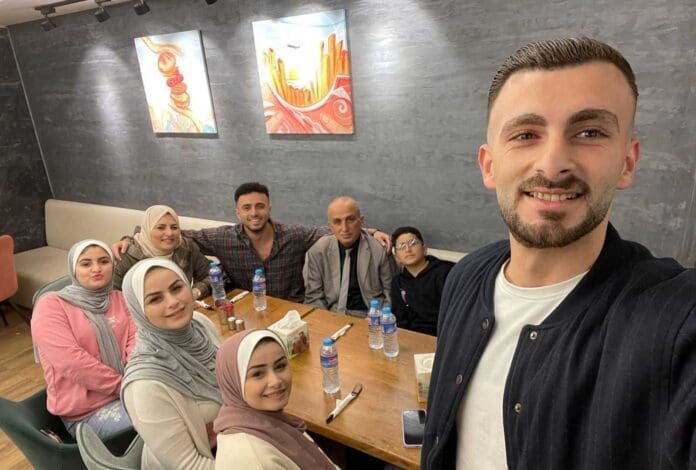Ahmed Nehad, a 24-year-old from Gaza, has been studying for his master’s degree in the United Kingdom for the past two months. Despite being away, he has been actively discussing the situation in Palestine, particularly in the past weeks. Adham Mousa, on the other hand, left Gaza 11 years ago and currently resides and works in the United States. He has only been back to Gaza once, in November 2022, and is uncertain about when he will be able to return.
Both Nehad and Mousa, like many other Palestinians residing outside of Gaza, are grieving from a distance as they receive news of their loved ones’ deaths due to the intense Israeli bombardment. They witness the destruction of entire neighborhoods and the collapse of the healthcare system, which adds to their struggle. Although their friends attempt to support them, it is challenging to fully comprehend or share the pain they are experiencing.
Previously, Mousa’s father used to send him a daily “Good morning” text. Now, he sends messages merely stating that they are safe and alive whenever he has access to mobile service or the internet. Mousa is unable to express the magnitude of his emotions towards the situation in Gaza, as anger, sadness, frustration, and fear overwhelm him. He worries about his family and the millions of other people residing in Gaza. He remarks that while he experienced constant air strikes and the need to flee from bombings in 2008-2009 during the Gaza massacre, he would still rather be at home with his family than witness their suffering from afar on a daily basis.
Nehad spends his days staying updated on the attacks on Palestinians in various regions such as the occupied West Bank, Jerusalem, the Gaza Strip, and within Israel. He compares this to a job, as it consumes his work and conversations, constantly discussing Palestine with everyone around him. When the news initially covered the recent attacks in Israel by Hamas, the world reacted in shock. Nehad believes this was mainly due to the victims being Israeli and not Palestinians. He expresses disappointment that his university and other institutions in the UK continue to send emails condemning Hamas and cautioning against displaying any sympathy towards Palestinian “terrorists.” He does not feel safe in the UK, as individuals who show support for Palestine are reported to university management or the authorities. Attending protests is seen as risky.
Mousa feels less lonely due to the support from friends and co-workers, as they understand the pain he is going through. His initial instinct was to search for flight tickets to return to Gaza and be with his family. However, the Egyptian government closed the border as soon as the Israeli bombings began, making it impossible for him to legally return home. So, he remained in the US and focused on educating people about Gaza and the Palestinian struggle. He acknowledges that most people are not naturally curious about the Palestinian situation, so he utilizes his social media profiles to share the truth. Although it is frustrating for him, he is determined to keep sharing the story of Palestine, in the hopes that others will do the same.
Contacting his family in Gaza is incredibly difficult for Mousa. He tries calling every hour, uncertain when they will have access to the internet or mobile service. Whenever someone picks up, he feels immense relief, knowing they are still alive. His father had planned to visit him, but the trip had to be canceled. Mousa expresses his longing to see his family but acknowledges that only God knows when or if that will be possible.
Similarly, Nehad is consumed with guilt and a feeling of betrayal. He yearns to be in Gaza, where the current situation is dire, and feels like the rest of the world ignores the suffering of two million people. He no longer fits into a world that disregards the blood, homes, and lives of those from Gaza. He longs to return to Gaza, the place where he truly belongs, surrounded by others whose well-being should matter.
